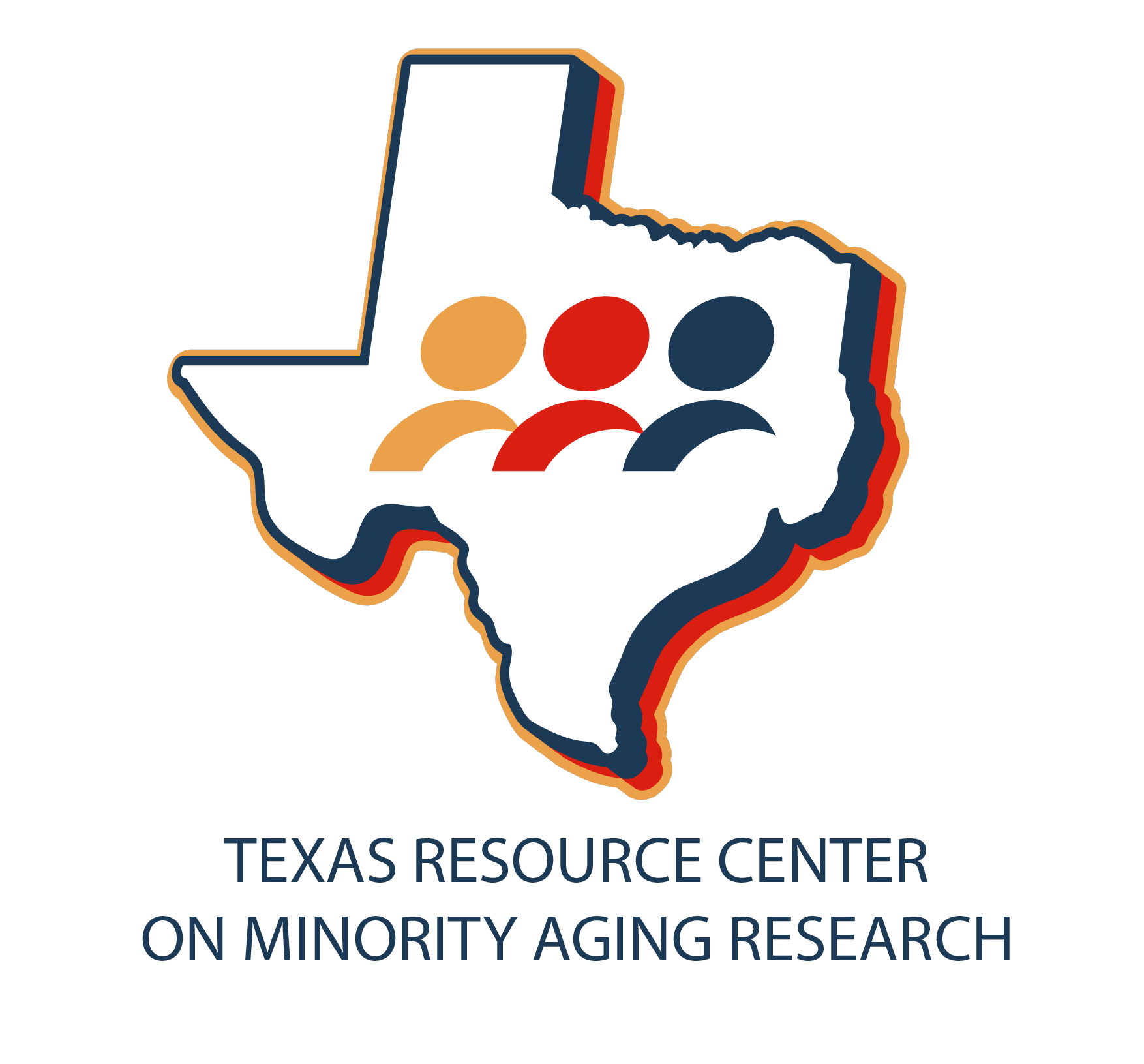Scientists
Second Cycle2023-2028
Year 2

Stephen Pan, PhD, Assistant Professor, Public Health, University of Texas at San Antonio

Patricia Garcia, PsyD, Assistant Professor, Clinical Medicine & Rehabilitation, Indiana University School of Medicine
Year 1

Phillip Cantu, PhD, Assistant Professor, Division of Geriatrics, Department of Internal Medicine, University of Texas Medical Branch

Zhiyong Lin, PhD, Assistant Professor, Sociology and Demography, University of Texas at San Antonio

Myrna Katalina Serna, MD, MPH, Assistant Professor, Division of General Medicine, Department of Internal Medicine, University of Texas Medical Branch

Coralia Vázquez-Otero, JD, MPH, PhD, Assistant Professor, Public Health, University of Texas at San Antonio
First Cycle2017-2022
-
Year 5
Racial/Ethnic Disparities in Non-Medical Prescription Drug Use Among U.S. Older Adults.
PI: Timothy J. Grigsby, PhD, University of Nevada
Mentors: Jay Shen, PhD and Chad L. Cross, PhD, MFT, Pstat(R), C-MDI
Goal: Characterize the trend in prevalence of Non-Medical Prescription Drug Use (NMPDU) in a nationally representative sample of U.S. older adults by race/ethnicity from 2015-2019; and explore how racial/ethnic NMPDU trends vary by education and income level.


Sociodemographic and Neurocognitive Characterization of Mexican American Bilinguals and Monolinguals Presenting with Typical and Pathological Cognitive Aging
PIs: Stephanie Grasso, University of Texas at Austin and Brian Downer, PhD, University of Texas Medical Branch
Goal: Characterize the sociodemographic profile of bilingualism, English proficiency, and language dominance in older Mexican Americans. Estimate the association of bilingualism, English proficiency, and language dominance with changes in cognitive function in Mexican Americans over a 20-year period. Identify cross-sectional differences in brain structure between Mexican American bilinguals and monolinguals presenting with typical cognitive aging, mild cognitive impairment (MCI), and Alzheimer’s dementia (AD). Evaluate the effects of bilingualism on longitudinal patterns of neurocognitive decline and the accuracy of deep machine learning to forecast these patterns over a six-year period in Mexican Americans with typical cognitive aging, MCI, and AD.
-
Year 4
The influence of Natural Disaster Severity on Incident Adverse Health Outcomes among older Mexican Americans.
PI: Amie Hufton, PhD, Texas A&M University at Galveston
Mentors: John Prochaska, PhD and Kyriakos Markides, PhDGoal: Examine the influence of natural disaster exposure and severity on incident mental, cognitive and physical health indicators among aging Mexican Americans. This retrospective analysis will a) describe the risk factors related to exposure to natural disasters associated with incident depression, cognition, or physical disability, and b) examine inequalities in these health outcomes by nativity (other or US born) in Mexican Americans who have participated in the Hispanic Established Population for the Epidemiological Study of the Elderly (H-EPESE).

Cognitive Demand of Lifetime Occupation among Older Mexican Adults.
PI: Chi-Ying “Cynthia” Li, PhD, University of Texas Medical Branch
Mentors: Rebeca Wong, PhD, and Soham Al Snih, MD, PhD.Goal: This pilot will test the feasibility of constructing an index of cognitive demand by occupation, using the participants of the Mexican Health and Aging Study (MHAS) and their reported main occupation over the life course. In addition, the project will identify the influence of cognitive demands of occupations on the diverse trajectories of cognitive function in old age among Mexicans. The pilot project will use data from the MHAS 2012 and information on occupational skills available in the Occupational Information Network (O*NET) database, maintained by the US Department of Labor (https://www.onetonline.org/), and MHAS 2012 to 2018 for the trajectories.

Gender Differences in Pain and its Relation to Cognitive Function among Aging Mexicans.
PI: Sadaf Milani, PhD, University of Texas Medical Branch
Mentors: Mukaila Raji, MD, and Rebeca Wong, PhDGoal: This pilot project will identify gender differences in patterns and covariates of persistent pain between two cohorts that have experienced distinct social changes in Mexico. We will identify sociodemographic, behavioral, and health correlates of pain among older Mexican men and women. We will compare the patterns among two cohorts, using non-overlapping age intervals: those aged 60 to 71 in 2001 and those aged 60 to 71 in 2012. In addition, we will use longitudinal data to assess gender differences in the relationship between persistent pain (reported in 2001/2003) and cognitive function among Mexicans over a 15-year follow-up (2003 to 2018).
-
Year 3
Caregiving and Disability in Older Vietnamese in the U.S.
PI: Christina E. Miyawaki, PhD, University of Houston
Goal: Examine how caregivers’ characteristics are associated with care recipients’ well-being by using the VACS Wave 1 caregiver-care recipient dyad data (N=67 dyads). Examine how care recipient’s sociodemographic and lifestyle characteristics are associated with their mental health by using the VACS Wave 1 care recipient data (N=132). Compare the prevalence of disability for older Vietnamese (n=10,052) with other older Asian Americans (n=87,958) and non-Hispanic Whites (n=2,406,785) by using the 2014-2018 US Census American Community Survey (ACS) data.
Mentors: Kyriakos Markides, PhD and Hoang Nguyen, PhD
Assessing geographic and cultural disparities in neurocognitive testing in Hispanic Americans with end stage renal disease undergoing evaluation for kidney transplantation.
PI: Michael L Kueht, II, MD, University of Texas Medical Branch
Mentors: Soham Al Snih, MD, PhD and Muhammad Mujtaba, MDGoal: Assess the prevalence and adequacy of neurocognitive testing in Hispanic Americans with end stage renal disease undergoing evaluation for kidney transplantation at two distant clinic sites within our institution, the Rio Grande Valley and Galveston Island. Determine the factors associated with cognitive impairment among Hispanic Americans with end stage renal disease undergoing evaluation for kidney transplantation at two distant clinic sites within our institution, the Rio Grande Valley and Galveston Island populations
-
Year 2
Testosterone deficiency, therapy, and mortality among older Hispanic men.
PI: David S. Lopez, MS, MPH, DrPH, University of Texas Medical Branch
Goal: Determine prospective associations between T deficiency and all-cause, cardiovascular, cancer specific mortality among Hispanic adult men in the NHANES waves (≥ 40 years). We will also explore the interrelations of T deficiency, obesity, urological and dietary factors with all-cause, cardiovascular and cancer-specific mortality. Investigate prospective associations of T therapy with risk of obesity-related cancers (prostate, bladder, and kidney) and cancer-specific mortality among Hispanic adult men (≥ 66 years) in the SEER-Medicare.
Mentors: Yong-fang Kuo, PhD and Kyriakos Markides, PhD
Household composition and cognitive change among older adults in Mexico.
PI: Jacqueline Torres, PhD, University of California, San Francisco
Goal: Evaluate the feasibility of constructing meaningful variables to capture the change in household composition over time, including respondent and family-member moves in mid to late life. Examine the effect of changes in household composition on cognitive decline for older respondents. We will assess the analytical power of these new variables in models of cognitive function and compare results using conventional techniques for evaluating
Mentors: Rebeca Wong, PhD and Kyriakos Markides, PhD -
Year 1
Life-space mobility, readmission, and mortality following stroke in Mexican Americans.
PI: Monique Pappadis, MEd, PhD, University of Texas Medical Branch
Goal: Identify the association among older Mexican Americans between pre-stroke life space mobility and: 1) discharge destination, 2) 30-day re-admission after discharge, and 3) mortality following a stroke, considering ischemic or hemorrhagic strokes with home, rehabilitation facility, or long-term care facility at discharge.
Mentors: Soham Al Snih, MD, PhD and Kenneth Ottenbacher, PhD
Awareness of cancer risk in Hispanic women aged 50 years and older
PI: Ana M. Rodriguez, MD, MPH, University of Texas Medical Branch
Goal: Evaluate the impact of certain risk factors on endometrial cancer risk among Hispanic postmenopausal women and describe the pattern of health utilization and proxy awareness of the relationship between obesity, comorbidities, and endometrial cancer risk by estimating health care utilization among Hispanic women aged 50 years and older at risk for endometrial cancer.
Mentors: James S. Goodwin, MD and Yong-Fang Kuo, PhD
Improving healthcare of older adults with ADRD: caregiver-patient dyads in the US and Mexico.
PI: Rafael Samper-Ternent, MD, PhD, University of Texas Medical Branch
Goal: Characterize patient-caregiver dyads and compare them by race/ethnicity in the US. Perform parallel analysis in Mexico to compare with the US Hispanic population. Address the following Specific Aims: 1) Identify patterns in the patient-caregiver dyads by race/ethnicity in the US and in Mexico; and 2) Compare patient/caregiver dyads of persons in the US and Mexico, and their association with attributes of the care provided.
Mentors: Rebeca Wong, PhD and Abbey Berenson, MD, PhD
Contact Us
Sealy Center on Aging (SCOA)
301 University Blvd.
Galveston, TX 77555-0177
Directions and Maps
Phone: (409) 747-0008
Email: aging.research@utmb.edu
